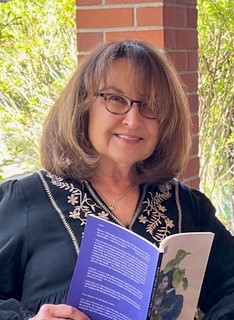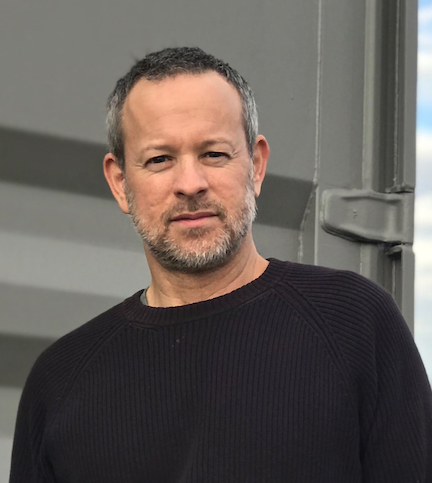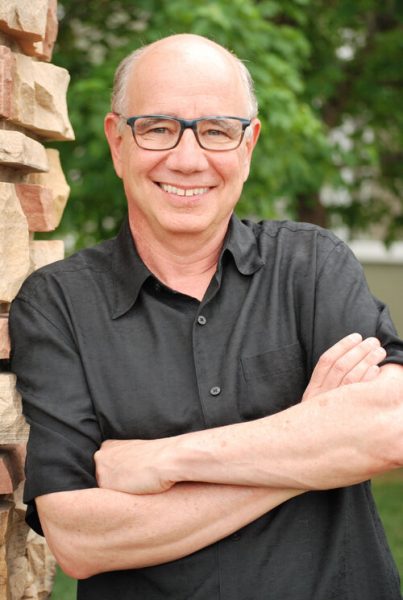
Each year, between 120 and 150 prospective students apply to the English department’s Master of Fine Arts in Creative Writing program. Known for the ability to work closely with a distinguished faculty of actively publishing writers (who include winners of prestigious national awards and fellowships), the program covers poetry, fiction, and nonfiction. Of those 150 applicants, only 12-15 are selected, and only 4-6 are offered a graduate teaching assistantship (GTA) which comes with a tuition waiver and a stipend that offsets living expenses. For the other 6-11 students who are not GTAs, they must fund their education.
And that’s where the generosity of people like Steven Schwartz and Deanna Ludwin come in. Schwartz is professor emeritus at CSU, where he taught creative writing for 33 years. Ludwin is a graduate of both the MA and MFA programs as well as a former instructor, internship coordinator, and mentor to students. Both of them believe so deeply in the program and in the quality of writers who apply to CSU, that each of them, and their spouses Gary Ludwin and Emily Hammond, has created fellowships to support those students who do not receive GTA positions.


Tremblay-Crow-Kern Creative Writing Fellowship
$10,000 fellowship for full time graduate students enrolled in the Creative Writing MFA program who do not have GTAs. Established in 2003.
Deanna Ludwin (MA ‘88, MFA ‘95), recipient of the 2003 Excellence in Teaching Award from the College of Liberal Arts and the 2006 Best Teacher Award from the Alumni Association, received a master’s degree in literature and master of fine arts degree in poetry before coming back to the department to teach and manage the internship program.
“During my time as a student, then as a faculty member, I encountered students who were struggling to balance academics and economics,” says Ludwin.
“Giving seems to me simply a way of participating in — no, embracing — one’s community. To do so, people offer whatever they’re able to contribute: time, talent, energy, ideas, perspectives, money. Each does what she can to nurture the health of the whole.”
This fellowship is named to honor the talent, inspiration, and tireless efforts of two former English faculty, Bill Tremblay and Mary Crow, who were professors and then colleagues of Ludwin, and in memory of Ludwin’s parents, Don and Darlene Kern, who – although (or because) they didn’t have the privilege of college educations – fully supported their three children in all of their academic endeavors.
Andrew Altschul, writer, associate professor and director of the Creative Writing program at CSU, says,
“These fellowships are critical to the success of the MFA program in Creative Writing. Because of the generosity of these donors, who include program alumni and emeritus faculty, we are able to provide meaningful financial support to writers who might not otherwise be able to attend our program. While most highly ranked MFA programs provide full funding for all students, our program relies on such fellowships, and a limited number of GTA positions, to attract talented students, allowing us to compete with some of the best programs in the country.”
Hammond-Schwartz Fellowship
$10,000 fellowship for a full-time student in the Creative Writing MFA program. Established in 2019.
Steven Schwartz, author of novels and story collections, recipient of the Colorado Book Award and other awards, retired from CSU in 2014. He and his wife, Emily Hammond, established their fellowship in 2019 to honor the many years and many students that Schwartz worked with over the years.
“I wanted to do something because of my time teaching for 30 years in the MFA program and all of what that meant working with grad students over that time,” he says. “Some of these relationships (with grad students) have gone on for decades; I’ve watched them have families and careers, and I realized how much these relationships meant to me. That’s what it’s all about: relationships.”
The Hammond-Schwartz Fellowship is rotated among the three creative genres and is designed to “help bring students out here – to a great program and great faculty,” says Schwartz, who is fiction editor for the Colorado Review and the Center for Literary Publishing housed at CSU. “There is a lot of opportunity here.”

Other support
Additional support for MFA graduate students comes from alumni. The Yong Woon Lee Fellowship, funded by Dennis Lee (MFA ‘13) and Yu-Chi Peng Lee, is awarded to a first-year MFA student in the amount of $4,250.
Whether faculty or former student or both, the investment in CSU’s creative writing students allows for a well-regarded program to continue its excellence by funding opportunities to connect professional and student writers to one another.
Student Voices
Grace Loveland is a third-year student in the fiction program who recently defended her book project, an urban fantasy novel told in ten parts, from varying perspectives in a magical version of Atlanta. Loveland received the Tremblay Crow Kern Creative Writing Fellowship. “I suffer from chronic health conditions, and the Fellowship allowed me to complete my first year of the program much more easily than I would have been able to accomplish otherwise.” For Loveland, the first year of her program was “incredibly challenging— my first year was the year the pandemic started, and so it has really colored my entire career as a graduate student. However, I want to say that the amazing community at CSU, from the faculty and staff to my fellow students, definitely made the situation easier.”
Jonnie Genova is a third-year MFA student. She received the Tremblay Crow Kern Writing Fellowship, which, “Odd as it sounds, in many ways solidified my belief in myself as a writer. It was an acknowledgment of my hard work and efforts to hone my craft, and it fortified my desire to keep going, keep writing,” she says. She describes her first year as, “a whirlwind.” “... in awe that I was accepted and that I was going to workshops and my time was spent reading and writing with all these amazing writers.”
Sara Hughes is a first-year student in the poetry program. “My first year has been both dense and uplifting. I find myself stirring often with new ideas, and it has been a stellar experience to be able to talk through them with my classmates, friends, peers,” she says. For Hughes, receiving the Yong Woon Lee Fellowship “reflected the program faculty’s belief in me and my poetry. It also offers a lesser financial burden over the course of the three years.” She is currently working on a five-section prose poem that chronicles multiple psychiatric hospitalizations and addresses the intersection of race, gender, coming of age, and mental illness.
